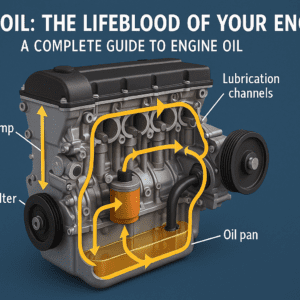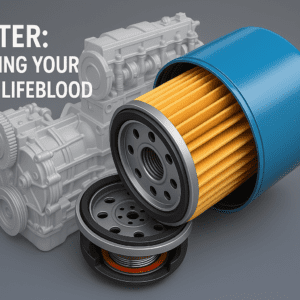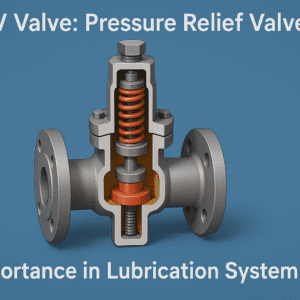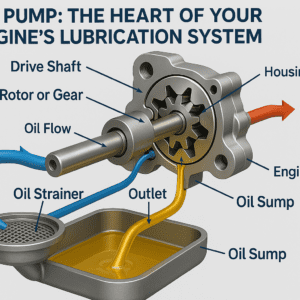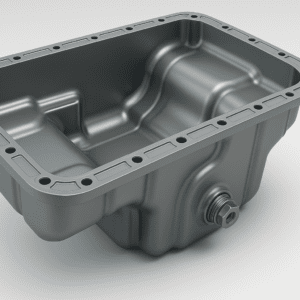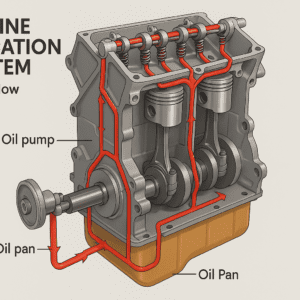
1. Introduction to Oil Coolers
1.1. Definition and basic function
Hey there, car enthusiasts! Let’s chat about a nifty little device that keeps your engine running smoothly – the engine oil cooler. Think of it as a mini-radiator for your car’s oil. It’s a simple yet clever gadget that helps maintain the right oil temperature, which is super important for your engine’s health.
Ever noticed how your car seems to run better on a cool day? That’s because oil cooler does a better job at lubricating and protecting engine parts. The oil cooler makes sure your oil stays at the right temperature, even when your engine’s working hard.
1.2. History and development of oil coolers
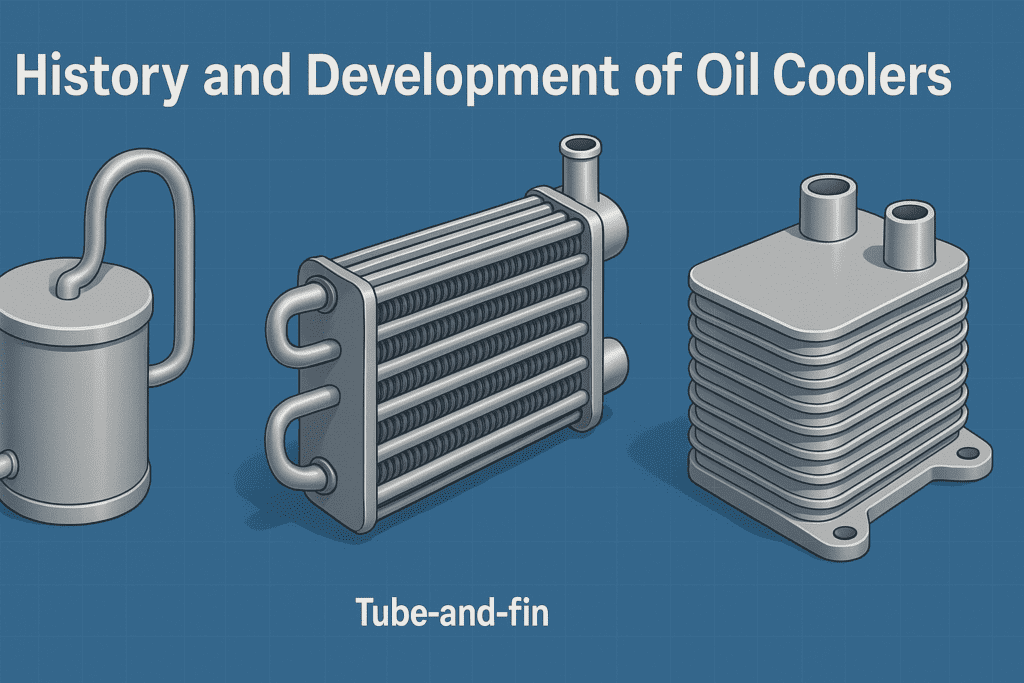
Back in the early days of automobiles, engines were pretty simple and didn’t need much cooling. But as cars got faster and more powerful, engineers realized they needed a way to keep the oil from getting too hot. That’s when oil coolers came into the picture!
They first became popular in the 1950s when car engines started getting more powerful and needed extra cooling. The oil coolers were pretty basic – just some tubes that let the oil cool down a bit. But over time, clever folks came up with better designs. They started using fins to increase the cooling surface and even added fans to help out.
As racing became popular, oil coolers became super important. Racecars needed to keep their engines cool under extreme conditions, so oil coolers got a lot of attention from engineers.
Today, oil coolers are found in all sorts of vehicles, from everyday cars to big trucks. They’ve come a long way, and they’re still getting better. Who knows what cool innovations we’ll see next in the world of oil coolers?
Read more about PRV Valve, click on this link: PRV Valve
1.3. Types of vehicles and engines that use oil coolers
You might be surprised to learn that oil coolers aren’t just for race cars or high-performance vehicles. They’re used in all sorts of engines:
- Cars and trucks (especially those used for towing)
- Motorcycles
- Boats
- Heavy machinery
- Aircraft
2. How Oil Coolers Work
2.1. The cooling process explained
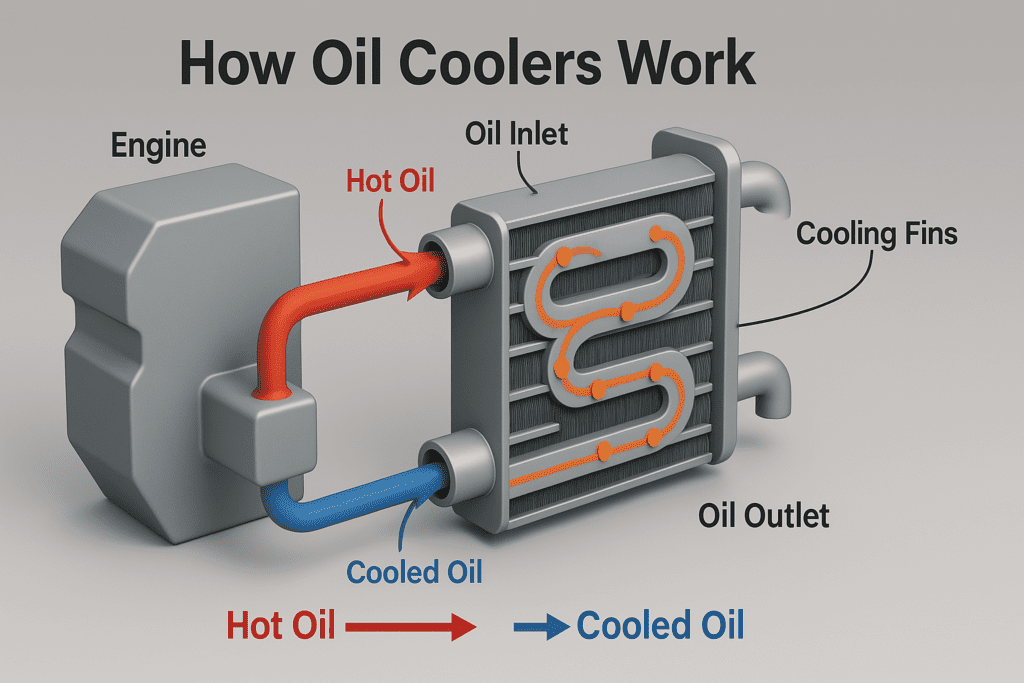
Alright, let’s break down how these oil coolers work. Imagine you’re on a hot day, and you decide to run through a sprinkler to cool off. That’s basically what an oil cooler does for your engine oil!
The hot oil from your engine passes through the cooler, where it’s exposed to cooler air or liquid. This cools the oil down before it heads back into the engine. It’s a simple idea, but it makes a big difference.
2.2. Components of an oil cooler system
An oil cooler system isn’t too complicated. Here’s what you’ll typically find:
- The cooler itself (usually looks like a small radiator)
- Oil lines (to carry the oil to and from the cooler)
- Mounting brackets
- Sometimes, a thermostat to control when the oil flows through the cooler
Read more about engine click on this link: Engine
2.3. Integration with the engine’s lubrication system
The oil cooler is like a pit stop in your engine’s oil circuit. The oil leaves the engine, takes a quick detour through the cooler to chill out, then heads back into the engine to do its job. It’s all part of keeping your engine running smoothly.
3. Benefits of Using an Oil Cooler
3.1. Temperature regulation and engine protection
The main job of an oil cooler is to keep your engine oil from getting too hot. Why does this matter? Well, when oil gets too hot, it starts to break down and can’t protect your engine as well. By keeping the oil at the right temperature, your engine stays protected and happy.
3.2. Extended oil life and improved performance
Cooler oil lasts longer. It’s as simple as that. When your oil stays at the right temperature, it doesn’t break down as quickly. This means you might be able to go longer between oil changes. Plus, your engine will thank you with better performance.
3.3. Increased engine efficiency and longevity
An engine that’s running at the right temperature is an efficient engine. It uses less fuel and puts less strain on its parts. This means your engine could last longer and run better. It’s like giving your car a fountain of youth!
Read more about lubrication system, click on this link: Lubrication System
4. Types of Oil Coolers
4.1. Air-cooled oil coolers

Imagine your engine oil as a hardworking employee. It gets hot and tired after running around your engine all day. An air-cooled oil cooler is like a refreshing breeze that helps this hardworking oil cool down and get back to work.
How Does It Work?
Hot oil flows through a series of tubes or fins. As it does, cool air rushes over these tubes, whisking away the heat. It’s like when you blow on hot soup to cool it down, but way more efficient!
Why Air-Cooled?
- Simple design: No extra pumps or liquids needed
- Lightweight: Your car will thank you!
- Cost-effective: Easier on your wallet
- Low maintenance: Less fuss, more driving
Where You’ll Find Them
Air-cooled oil coolers are popular in:
- Motorcycles
- Vintage cars
- Some modern performance vehicles
“An air-cooled oil cooler is like a cool breeze on a hot summer day – refreshing and necessary!”
4.2. Liquid-cooled oil coolers

You know how your engine gets pretty hot when you’re cruising down the highway? Well, that’s where these nifty devices come in. Liquid-cooled oil coolers help keep your engine oil at just the right temperature, which is super important for your car’s health.
Visit website to this link: Autobiography Zone
How Do They Work?
Imagine a tiny radiator inside your car. That’s basically what a liquid-cooled oil cooler is! It uses the engine’s coolant to bring down the temperature of the oil. The hot oil flows through tubes surrounded by coolant, and voila! The oil cools down before heading back into the engine.
Why Should You Care?
Here’s the thing – keeping your oil cool is like giving your engine a refreshing drink on a hot day. It helps your engine run smoother, last longer, and even save you some gas money. Plus, it’s especially handy if you like to push your car a bit harder sometimes, like when towing or racing.
Are They Worth It?
In my opinion, if you’re into performance driving or you use your vehicle for heavy-duty tasks, a liquid-cooled oil cooler is definitely worth considering. It’s like giving your car a little extra TLC.
So there you have it, folks! Liquid-cooled oil coolers might not be the most exciting topic, but they’re pretty cool in my book. Keep your engine happy, and it’ll keep you rolling for miles to come!
They’re more efficient than air-cooled systems, especially in hot climates or for vehicles that work hard (like tow trucks).
4.3. Stacked Plate Oil Coolers

Imagine a bunch of thin metal plates stacked together like a deck of cards. That’s basically what a stacked plate oil cooler looks like. Each plate has tiny channels that allow oil to flow through, while coolant flows between the plates. This setup helps the hot oil transfer its heat to the coolant, cooling it down before it heads back to the engine.
Why They’re Awesome
- Super efficient: The large surface area of all those plates means more cooling power in a compact package.
- Tough cookies: These coolers can handle high pressures and temperatures like champs.
- Space-savers: Their compact design makes them perfect for tight engine bays.
How They Work Their Magic
Hot oil enters one end of the cooler, zigzags through the plates, and exits the other end much cooler. Meanwhile, coolant flows in the opposite direction, picking up heat from the oil as it goes. It’s like a microscopic water park for your engine oil!
When You Might Need One
If you’ve got a high-performance car, tow heavy loads, or live somewhere that’s always toasty, a stacked plate oil cooler could be your engine’s new best friend. It helps prevent oil breakdown and keeps your engine running at its best.
So there you have it – the lowdown on stacked plate oil coolers. They’re small but mighty, and they play a big role in keeping your engine happy and healthy.
4.4. Tube and Fin Oil Coolers

Imagine a miniature radiator designed specifically for your engine’s oil. That’s essentially what a tube and fin oil cooler is! It’s made up of tubes that carry hot oil, surrounded by fins that help dissipate heat into the air.
Why Your Engine Needs One
Your engine works hard, and all that work generates a lot of heat. Oil helps keep things running smoothly, but it can get too hot. That’s where our friend the oil cooler comes in. It helps maintain the right oil temperature, which is crucial for:
- Protecting engine parts from wear and tear
- Maintaining proper oil viscosity
- Preventing oil breakdown
How They Work Their Magic
The process is simple but effective. Hot oil from the engine flows through the tubes. As it does, the heat transfers to the fins. The fins, with their large surface area, then release this heat into the air passing over them. It’s like a game of hot potato, but with oil!
Benefits of Tube and Fin Design
This particular design is popular for good reasons:
- It’s compact, fitting nicely in tight engine spaces
- It’s efficient at transferring heat
- It’s relatively simple and reliable
Caring for Your Oil Cooler
Like any part of your car, oil coolers need a little TLC. Regular checks for leaks or damage, and keeping the fins clean from debris, can go a long way in ensuring your oil cooler keeps doing its job well.
Remember, a happy oil cooler means a happy engine, and that means a happier you on the road!
4.5. Remote Oil Coolers

Simply put, a remote oil cooler is like a mini-radiator for your engine oil. It’s installed away from the main engine block (hence the “remote” part) and helps keep your oil at the right temperature. Think of it as a cool spa day for your engine oil!
Why Bother with a Remote Oil Cooler?
Good question! Here’s the deal:
- It helps your engine run smoother and last longer
- It’s great for cars that work hard (like towing or racing)
- It can improve your car’s overall performance
How Does It Work?
Imagine your engine oil taking a little detour on its journey. The remote cooler gives it a chance to chill out (literally) before heading back to work in your engine. It’s like a quick refresher for your hard-working oil!
Is It Right for Your Car?
That depends! If you’re just driving to the grocery store and back, you might not need one. But if you’re into more demanding driving, it could be a game-changer. It’s always worth asking your friendly neighborhood mechanic for advice.
Remember, keeping your engine cool is key to a happy car. A remote oil cooler might just be the cool friend your engine needs!
5. Signs Your Engine Needs an Oil Cooler
5.1. High oil temperatures during operation
If you notice your oil temperature gauge creeping up higher than usual, especially when you’re working your engine hard, it might be time to consider an oil cooler.
5.2. Frequent oil changes due to degradation
Are you changing your oil more often than you should? If your oil is breaking down quickly, an oil cooler could help extend its life.
5.3. Engine performance issues in hot conditions
Does your car seem to lose power on hot days or when you’re towing? This could be a sign that your oil is getting too hot and needs some help cooling down.
6. Installation and Maintenance of Oil Coolers
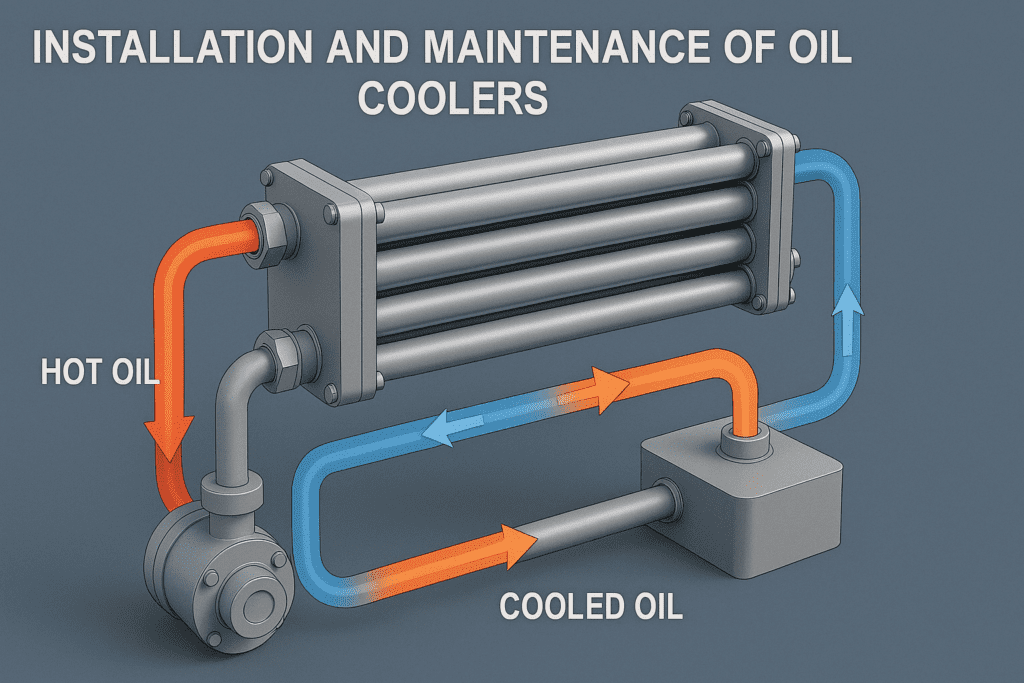
6.1. Professional vs. DIY installation
While some handy folks might be able to install an oil cooler themselves, I’d recommend getting a professional to do it. There’s a lot that can go wrong if it’s not installed correctly. Trust me, I learned this the hard way when I tried to install one on my first car!
Visit website to this link: Autobiography Zone
6.2. Proper placement and mounting considerations
Where you put your oil cooler matters. It needs good airflow and should be protected from road debris. A professional will know the best spot for your specific vehicle.
6.3. Routine maintenance and inspection tips
Once your oil cooler is installed, it doesn’t need much maintenance. But it’s a good idea to:
- Check for leaks regularly
- Clean any debris from the cooler (if it’s air-cooled)
- Have it inspected when you get your oil changed
7. Common Misconceptions About Oil Coolers
7.1. “All engines need an oil cooler”
Not true! While oil coolers are great, not every engine needs one. It depends on how you use your vehicle and the conditions it operates in.
7.2. “Oil coolers only benefit high-performance vehicles”
This is a myth. Even everyday vehicles can benefit from an oil cooler, especially if you tow or drive in hot climates.
7.3. “Oil coolers are a substitute for regular oil changes”
Nope! While an oil cooler can help your oil last longer, it’s not a replacement for regular oil changes. You still need to change your oil as recommended by your vehicle’s manufacturer.
8. Summary
Oil coolers are an often overlooked but important part of many engines. They help keep your engine running smoothly by regulating oil temperature. While not every vehicle needs one, they can be a great addition for many drivers, especially those who put their engines under stress.
9. Frequently Asked Questions
How often should an oil cooler be replaced?
Oil coolers don’t typically have a set replacement schedule. They can last the life of your vehicle if properly maintained. However, if you notice any leaks or performance issues, it might be time for a replacement.
Can an oil cooler improve fuel efficiency?
In some cases, yes. By keeping your engine running at optimal temperatures, an oil cooler can help your engine run more efficiently, which could lead to slightly better fuel economy.
Are oil coolers necessary for modern engines?
Not always. Many modern engines are designed to manage heat effectively without an additional oil cooler. However, if you use your vehicle for towing or in extreme conditions, an oil cooler could still be beneficial.
Visit website to this link: Autobiography Zone
